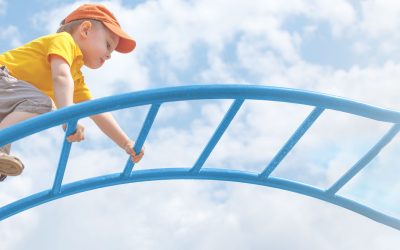“What are you doing?! Where did you find that? Why is there diaper cream on the wall!?” Have you heard yourself saying these to your kids, yelling these to your kids? Every kid, even the best-behaved ones, will find a way to do something that is totally shocking to you while they’re busy engaged in exploratory play… out of your sight.
When I was 4, my parents found me in the basement painting the wall with paint thinner. 29 years later, I went into Dylan’s room and discovered he painted the wall with petroleum jelly. My sweet little Ryan decided to put diaper cream all over his crib, carpet, and beanbag chair. So I guess they “got it” from me.
In my defense as a parent, neither the cream nor the petroleum jelly were in a place where I thought they could reach, and I didn’t think they could open them. Boy, was I wrong.
Kids are curious; they are constantly learning. Exploratory play is part of their normal development. As far as the “destruction” part goes, they come by it honestly. Consequences are far beyond their comprehension.
This explains why my brother-in-law managed to stick a bobby pin into an electrical socket. He was curious. And a couple weeks later he put his hand on the stove top… for the second time. And a few months later he grabbed a food processor blade.
So you see, not only can exploratory play be destructive, the curiosity that drives it can be dangerous. With kids things can happen so quickly. And extorting promises to stop seldom keep them from getting back into mischief. We’ve all heard the horror stories of kids getting injured by furniture falling on top of them, or like my brother-in-law, electrocuted because of a turned back. (Luckily he is now a very successful businessman!)
But kids learn by using all their senses–touching, hearing, seeing, tasting and smelling. Which is why exploratory play is still necessary. You can’t eliminate it!
Planned Exploratory Play
To minimize destruction, set aside planned time where doing and exploring is not only encouraged, but expected!
Touching: If your kids are “touchers,” make a game out of it. Blindfold them and have them stick their fingers into them to feel the different textures. Try finger painting, play dough, or sandcastles.
Climbing: If your kids are climbers, take them to the park, or to a climbing gym.
Tasting: Does your child like to taste things? Go to a farmers market, or grocery store and pick out a new food to try.
Smelling: Go to a green house or garden and let them smell the different flowers. Take them to a farm – there are certainly a host of interesting smells there.
Around the house
Childproofing: First and foremost make sure your house is childproof. If you haven’t evaluated your childproofing since your kids were infants, then it’s time to make sure you update it for kids who can climb and open things! Continue to think about childproofing as your children grow. Every few months just watch your kids, see where a curious hand may land on a counter or see if they figured out how to climb using the handles on your drawers.
Safe play areas: Make things you want them to play with readily accessible. Keep their toys handy and let them know where they are kept. Have a safe space where they play with a little less supervision. This will allow them to be independent and explore, for you it will be peace of mind that they are not likely going to hurt themselves.
Be vigilant: The rest is up to you. Keep things out of reach, and better yet out of sight if you don’t want your kids playing with it. Around things like barbecues or stoves, teach them to keep a safe distance, and always have an eye on your kids.
Who cares if the burgers burn? Better them than your kids.
Quick tips
- Foster your children’s curiosity in a constructive way.
- Keep your eyes on them at all time, they are sneaky.
- “Baby proof” your house on a regular basis, especially as they get bigger.
Andrew obtained his PhD from the University of Waterloo in Physiology, a topic not entirely having to do with with kids health specifically. Andrew’s expertise in kids health and raising children stems from his now 4+ years of direct hands on experiences with 4 young boys. My goal is to share some practical advice and some of the little not-so-perfect things my kids have done and how we managed to figure it all out so you can too.










